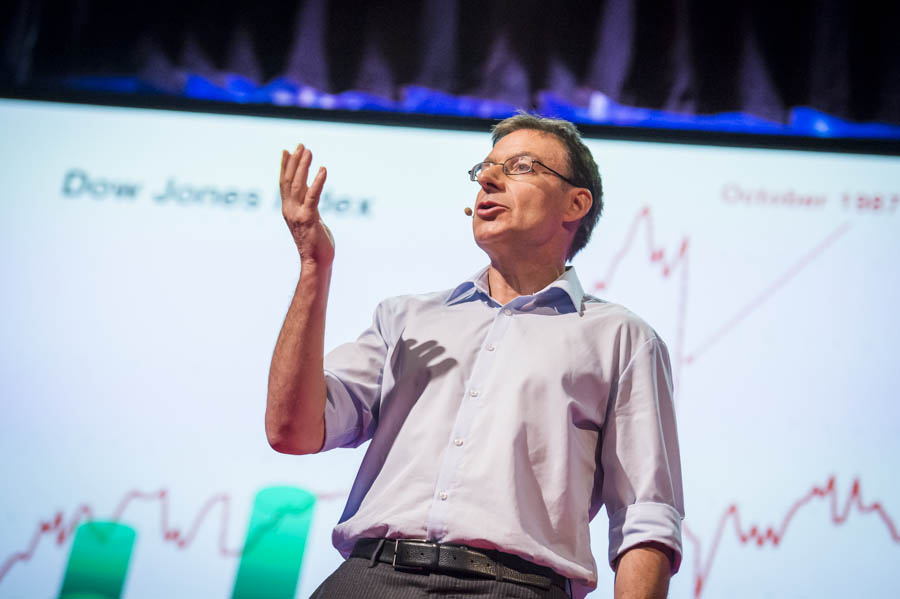Risk economist Didier Sornette makes bold claims on Wednesday morning at TEDGlobal 2013, during the session “Money Talks.” According to Sornette, we have been operating under a few detrimental illusions that have landed us in our current economic state: One, we have been living in an age of never-ending growth and prosperity. Well, $30 trillion losses in the global market from the Great Recession have already shattered this illusion. And two, that we couldn’t see this crash coming.
The 2007-2008 crash seemed to come out of nowhere, with no source or group to take responsibility, an unpredictable one-time anomaly — as Sornette calls it: “the wrath of God.” But as he says firmly: Despite what standard risk management tools show, these outliers operate under special mechanisms that make them predictable, perhaps even controllable. Sornette and his team at the Financial Crisis Observatory (FCO) call these special cases “dragon-kings.” Dragon-kings, in direct contrast with “black swans,” are at the core characterized by a slow maturation of instability, which move toward a bubble, until the bubble reaches a climax and bursts.
There are many early warning signs of dragon-kings, but one of the crucial ones is super-exponential growth. Super-exponential growth is trenchant and unsustainable and can be found in many areas of study to predict dragon-kings. Sornette has applied it to Ariane rockets, parturition problems, epilepsy, landslides, even blockbuster movies and YouTube virality.
Dragon-king theory can be applied to 30 years of financial bubble history, starting with the worldwide bubble that started in 1980 and popped in 1987, and ending in the most recent global over-valuation bubble that broke in 2007 and 2008. In December 2007 Sornette predicted the Chinese market bubble, to the disbelief of analysts. Three weeks after his presentation the markets lost 20 percent, and by the end of the year they had lost 70 percent.
Can the dragons be slain? In a way. Learn the art of planning and predicting, says Sornette. If we find pockets of predictability, advanced diagnostics of crises are possible. So that crises may never again take us by such surprise.
Didier Sornette’s talk is now available for viewing. Watch it here »


Comments (4)
Pingback: DIDIER SORNETTE: “CRISES ARE PREDICTABLE” | Social Action Now!
Pingback: Didier Sornette: “Crises are predictable” | Social Action Now!
Pingback: “Crises are predictable”: Didier Sornette at TEDGlobal 2013 « Economics Info